Pros and cons
A hallway in light colors has many advantages:
- Visual increase in area. Light shades really make the room more spacious, which is relevant for small apartments. Spacious hallways look incredibly impressive, even festive.
- Saving on electricity. Unlike dark ones, light colors do not absorb, but reflect light: accordingly, even the artificial brightness of one chandelier in a not very large area will be enough.
- A wide selection of shades. Firstly, natural white is multifaceted: its palette includes warm and cold, blue, green, yellow undertones. Secondly, white is neutral and combines with any other colors.
- Maintaining relevance. A light corridor is a classic solution that is always in trend.
- Beneficial effect on the psyche. White, gray, cream are neutral in relation to a person: they do not excite, but do not relax completely. Therefore, they suit everyone.
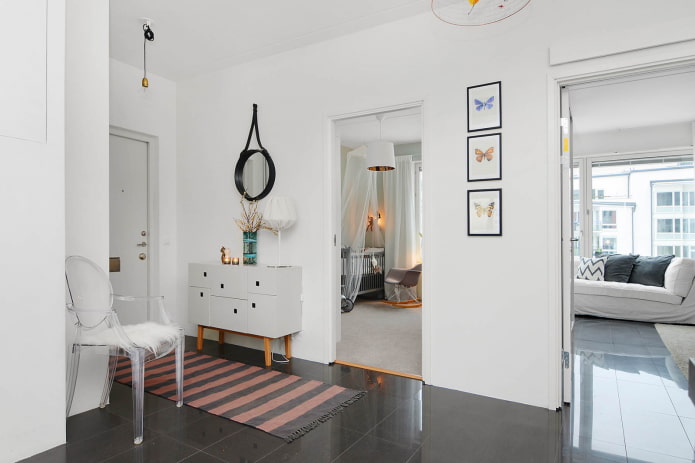
The photo shows a hallway renovation in light colors
Naturally, a hallway with a light finish has a number of disadvantages:
- Impracticality. This disadvantage cannot be ignored, but it is quite relative. That is, paper white wallpaper, for example, will quickly become unusable. And washable materials, such as special paint or hot stamping vinyl wallpaper, will serve you for many years.
- Sterility. For some unknown reason, many people consider white rooms to be uncomfortable, like operating rooms. To avoid this, add a lot of stylish decor or replace snow-white with beige, sand, ivory, gray.
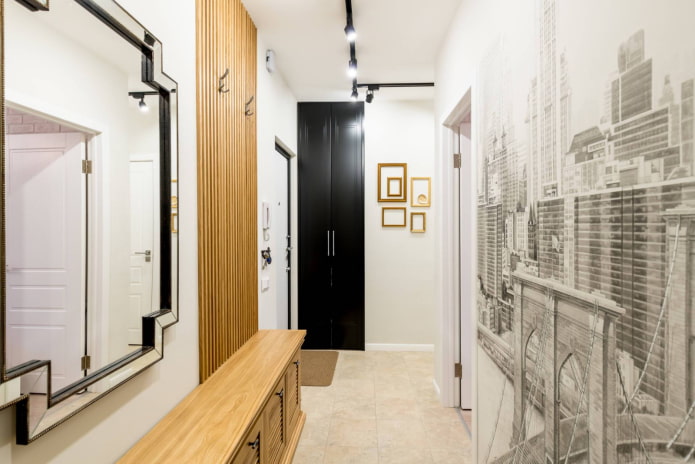
What tones are most often chosen?
A hallway in light tones can look completely different. There are 4 main options.
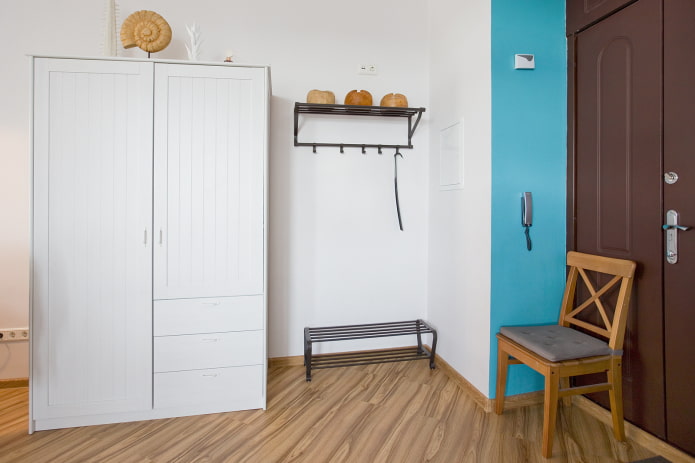
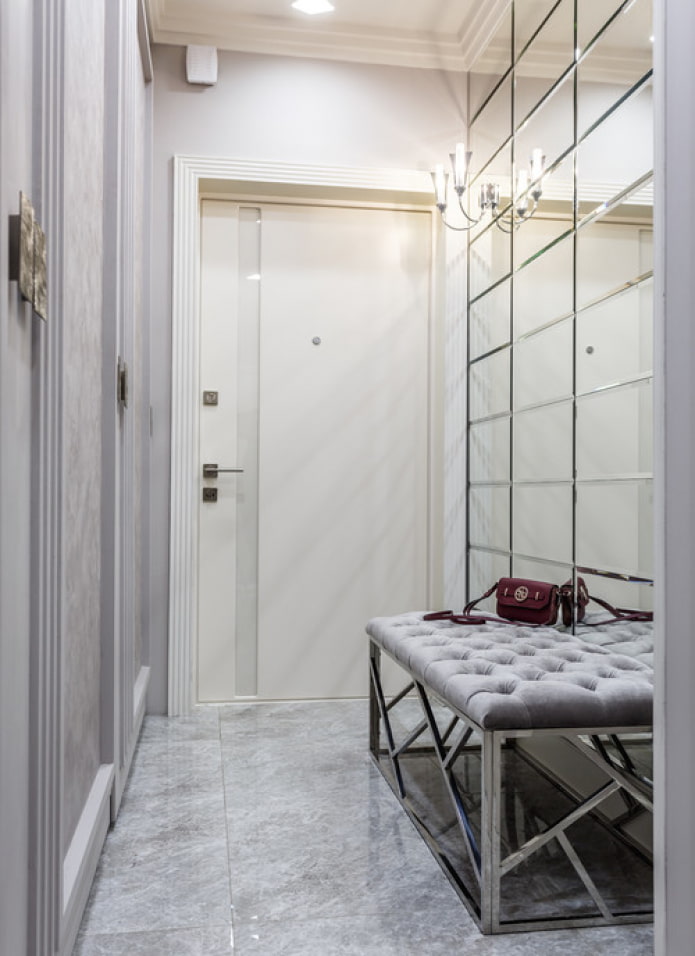
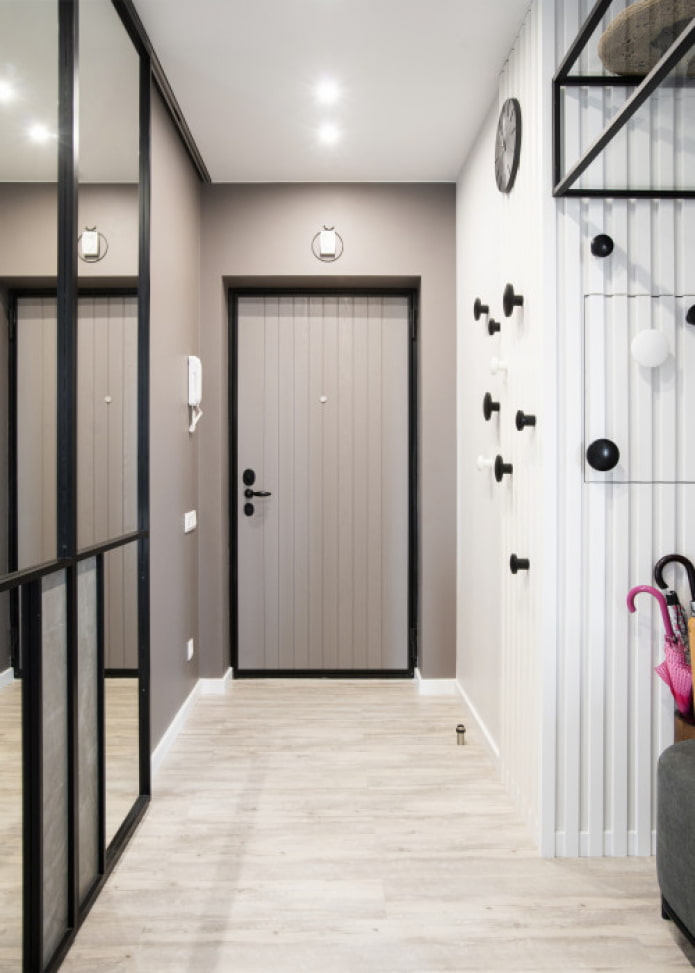
Predominance of white
White is the foundation of foundations. They say that if you can’t choose a shade, give preference to white. It is suitable for the ceiling, walls, front door, furniture.
To avoid ending up with a hospital room, add decorative elements both to the decoration and to the interior itself. Contrasting baguettes or paintings on the walls, ceiling rosettes, hooks, furniture handles, rugs will help diversify the design.
Neutral light tones
Decorating the hallway in light tones is not limited to white. Its closest alternatives are beige and gray. The first is suitable if you want to create the most cozy corridor. Beige is also the basis of classics and neoclassicism. Gray is preferable in the Scandinavian style, hi-tech, minimalism. It brings a touch of coolness to the overall picture, calms and relaxes.
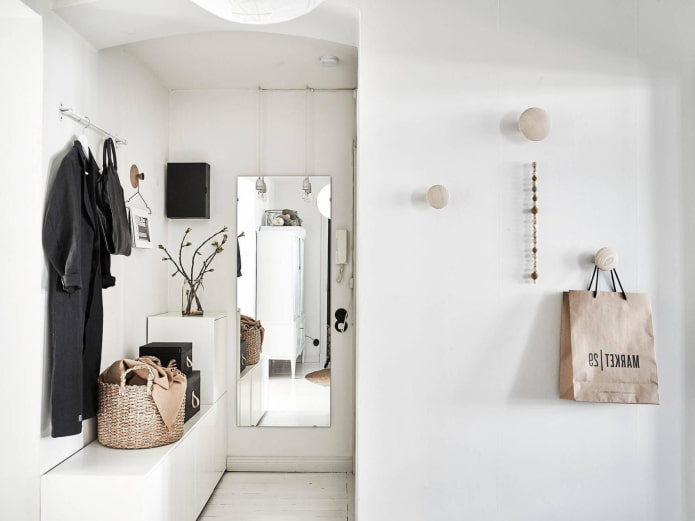
The photo shows a small hallway with white walls
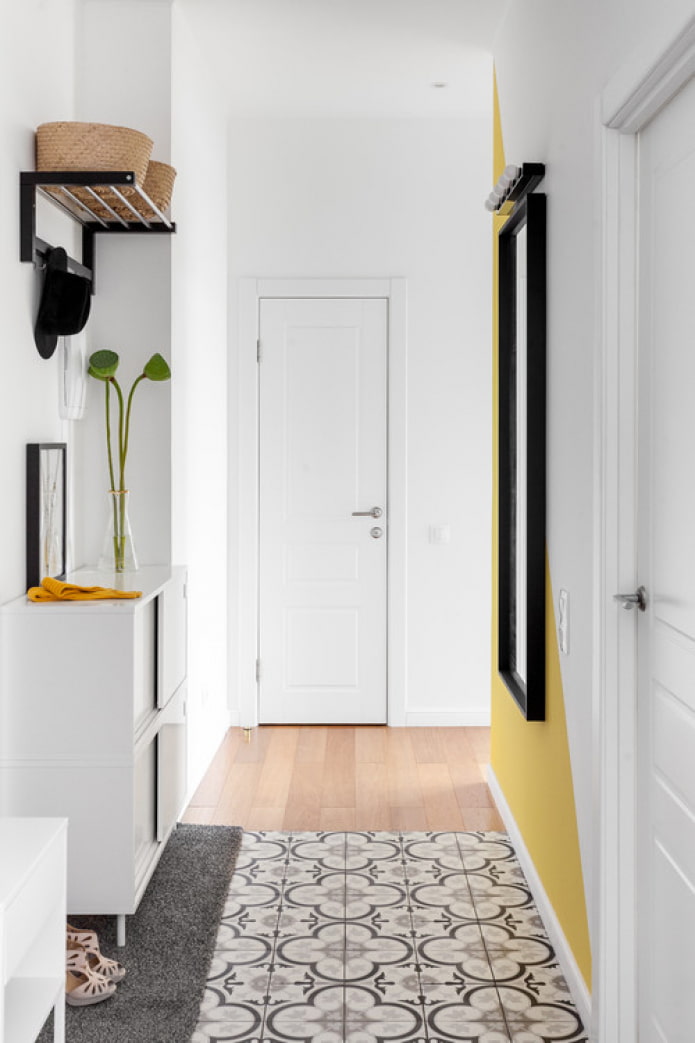
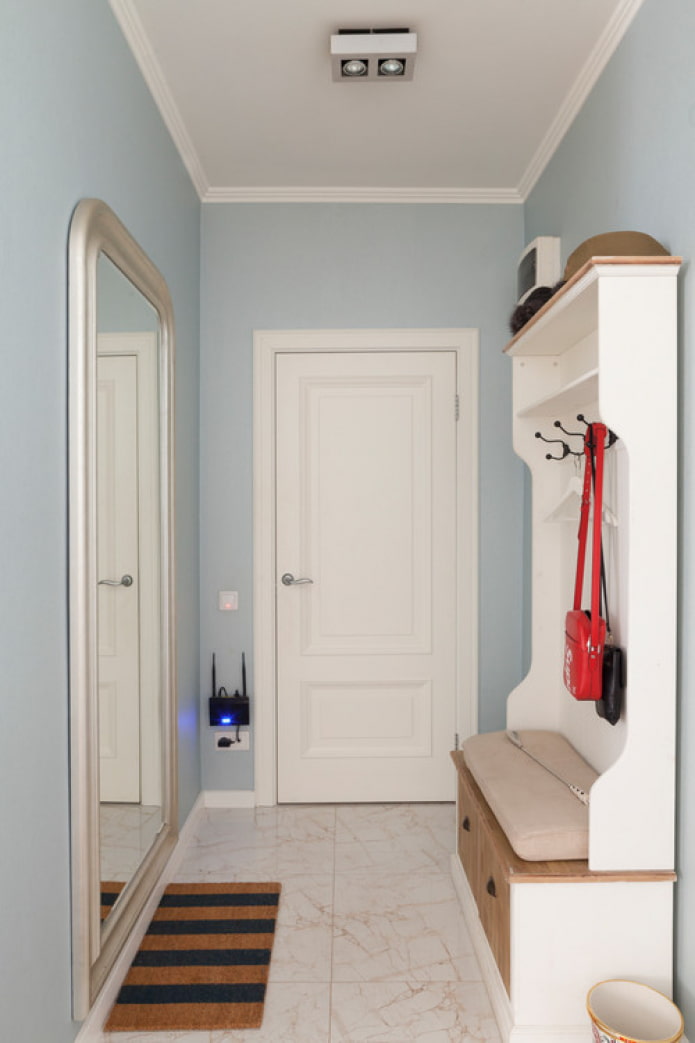
Pastel palette
The idea of decorating a hallway in light pastel colors will appeal to those who find the previous options boring. Pastel is extensive: it has sky and grass, sunny and purple. Accordingly, you choose the temperature and saturation of the color yourself.
Advice! Choose one main finish and 1-2 additional ones. Using a large number of colored paints, you risk getting an overloaded interior.
Bright accents
Another way to make a hallway in a light palette not boring: add color contrasts. A win-win option is to choose any 1 color and complement it with a white, gray, beige interior. Lemon yellow, scarlet, ultramarine, lush grass – each will enliven the design and add individuality to it.
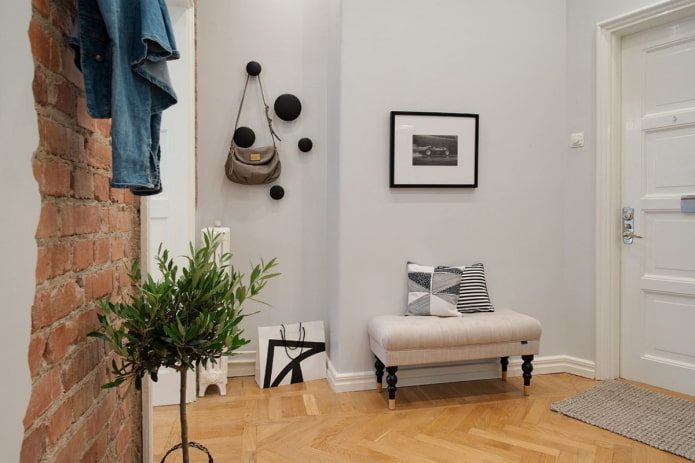
What finish to choose?
Hallway renovation starts with the ceiling. For a large or small hallway in light colors, the best solution is a classic white ceiling. To increase the height of the walls, you can use a glossy stretch fabric: its reflective ability will make the entrance area more spacious and brighter.
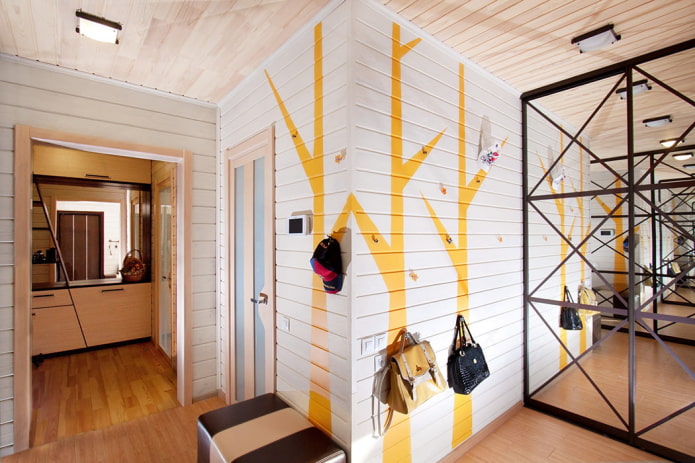
The photo shows wall finishing with clapboard
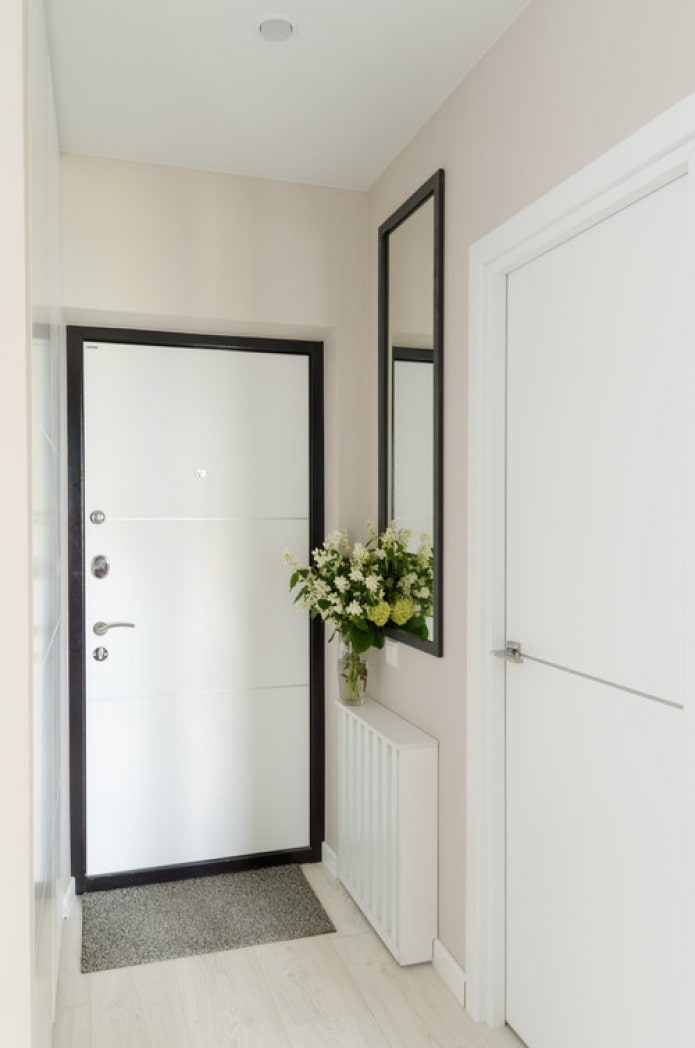
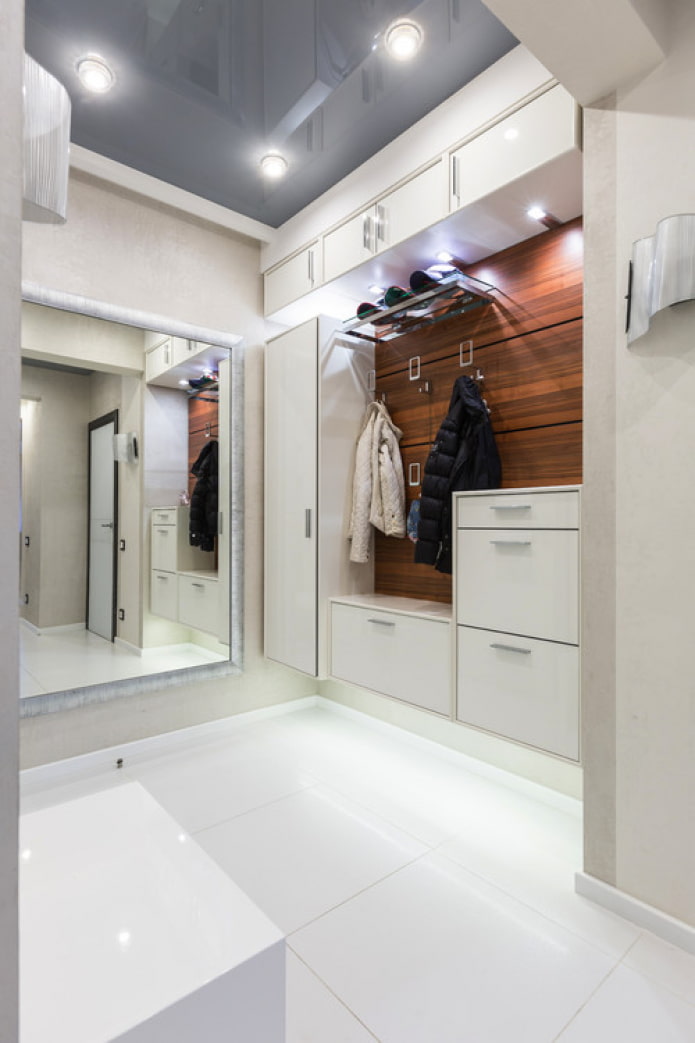
Choose the wall decoration to your taste. Smooth, single-color wallpaper or paint will look the most neutral. Textures such as decorative plaster, concrete, and brick are also appropriate. One of the surfaces can be made an accent: this solution will help to correct the geometry of a too narrow, elongated room, for example.
Important! There are a lot of pollutants in the hallway, so all materials must be washable.
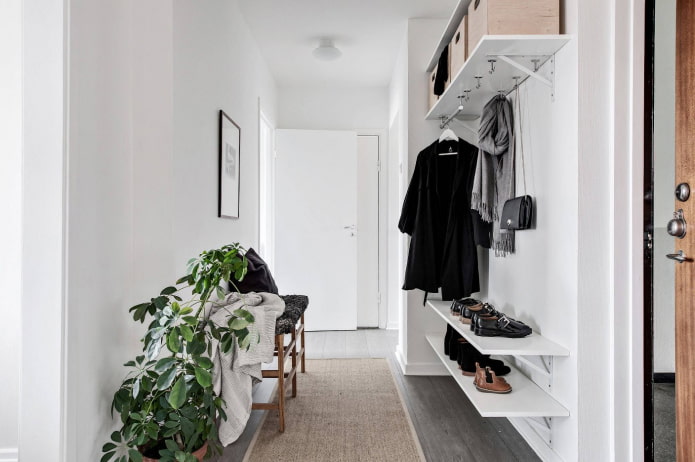
The photo shows hanging shelves in the hallway
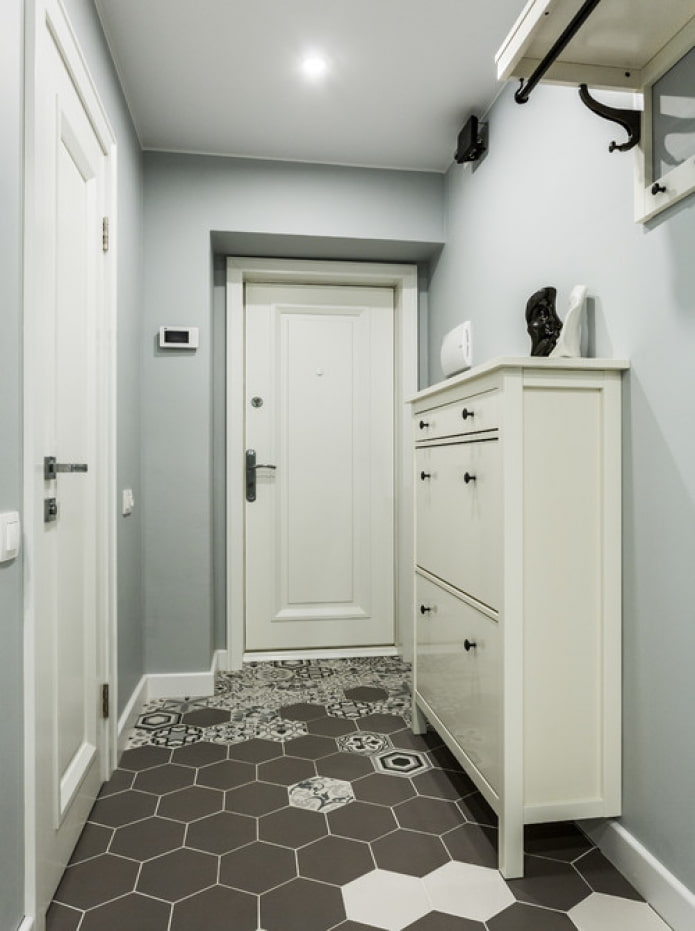

The floor is the darkest covering in the room, but experts do not advise choosing tones close to black: it is not practical. It is better to stop at medium-saturated shades. Linoleum, laminate, ceramic tiles, quartz vinyl and other modern materials are used on the floor.
Important! Commercial grade flooring is considered the most suitable for the hallway: it can withstand heavy loads and is not afraid of high traffic.
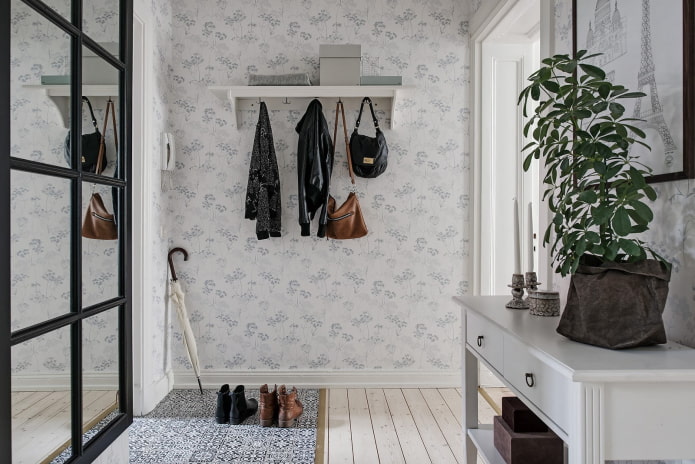
The photo shows wallpapering the walls of the hallway
Selecting furniture
The interior design of a light hallway is just beginning with finishing. The second important step is furnishing. TOP 3 must-have elements near the front door:
- hooks or a wardrobe for outerwear;
- a shelf or a wardrobe for shoes;
- a seat in the form of a pouf, armchair, chair, bench.
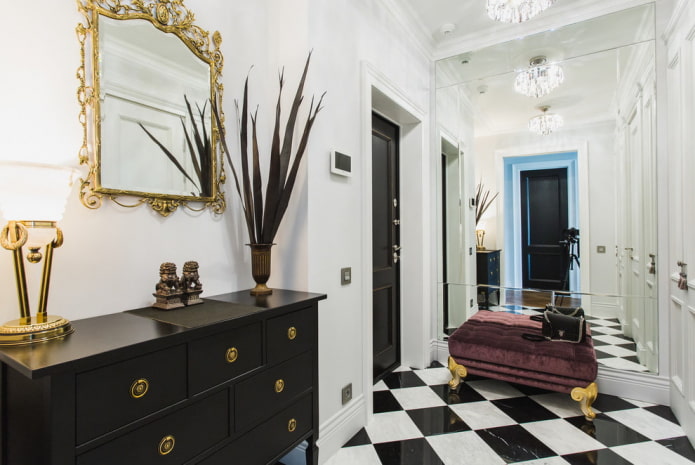
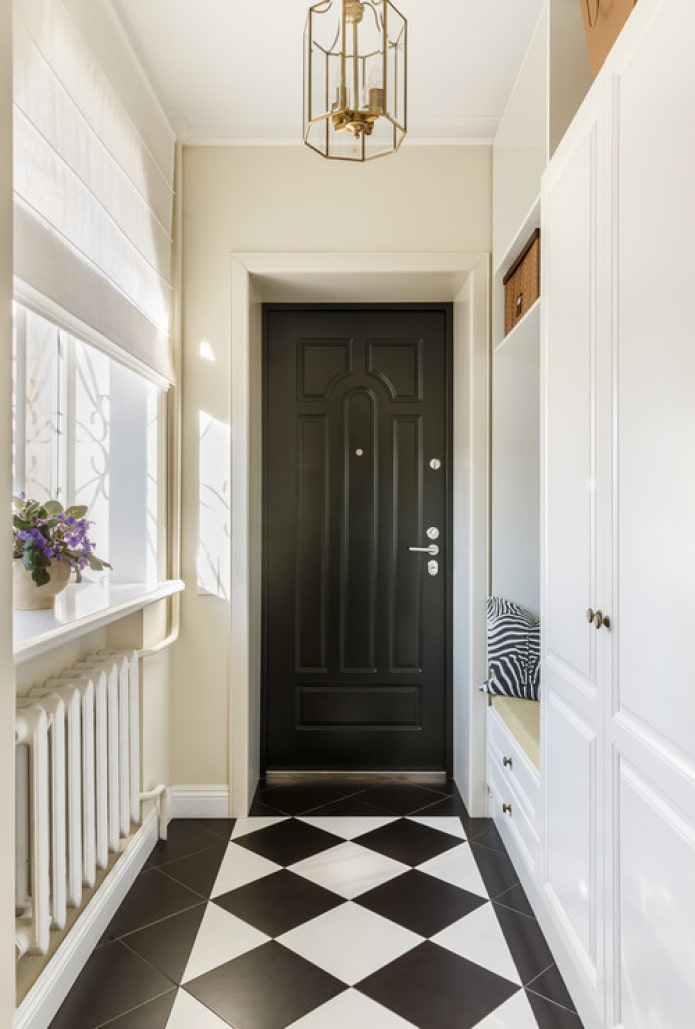
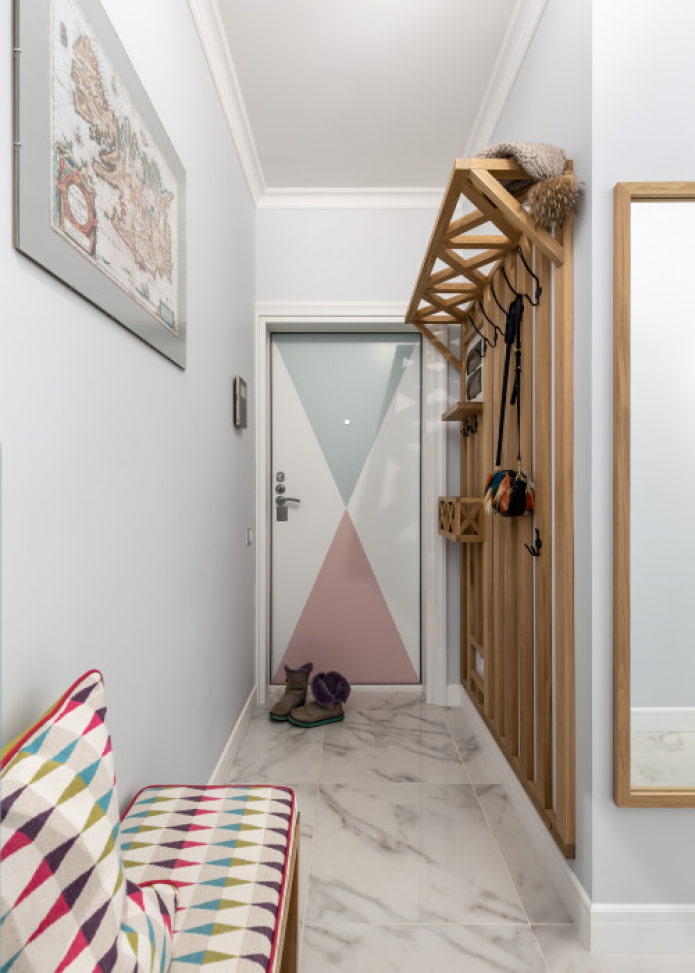
The use of additional items depends on the size of the hallway and your personal preferences. A shelf or tabletop for various small items, a box for hats, gloves, etc. would not be superfluous.
Advice! For ergonomic use of space, organizers advise storing everything related to the hallway in it. Seasonal footwear, outerwear, bags, hats, scarves, gloves, umbrellas, accessories for clothing and footwear care.
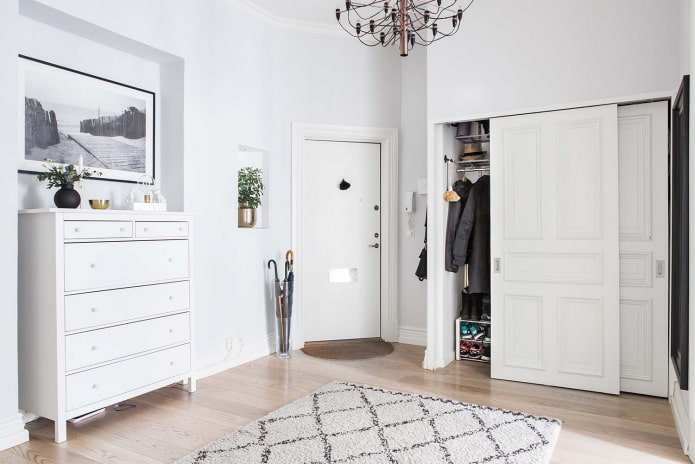
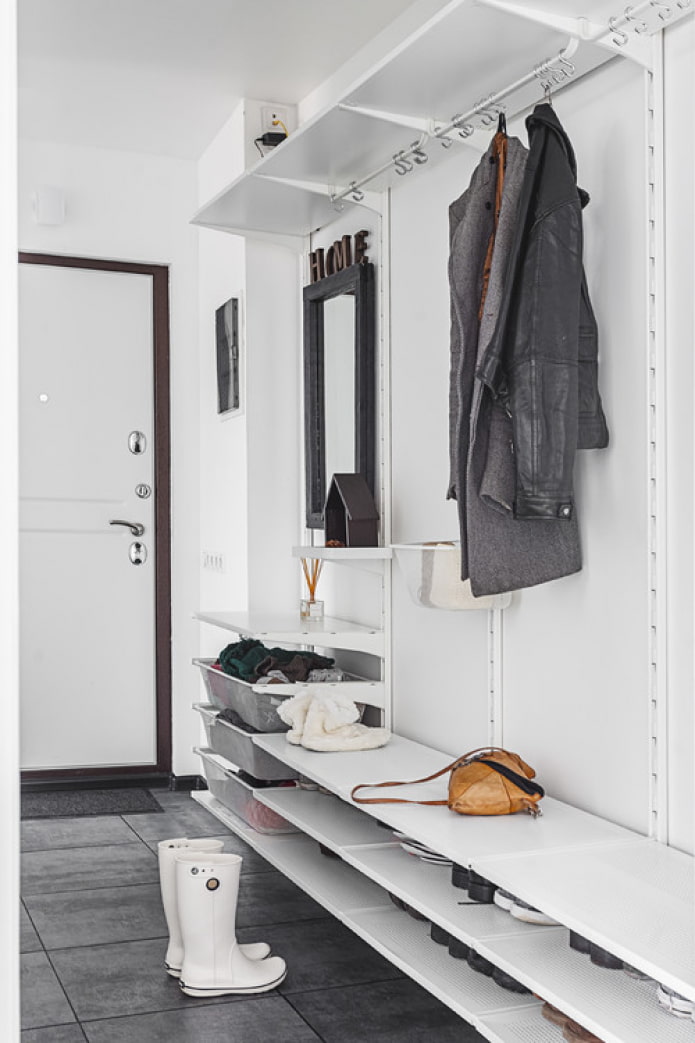
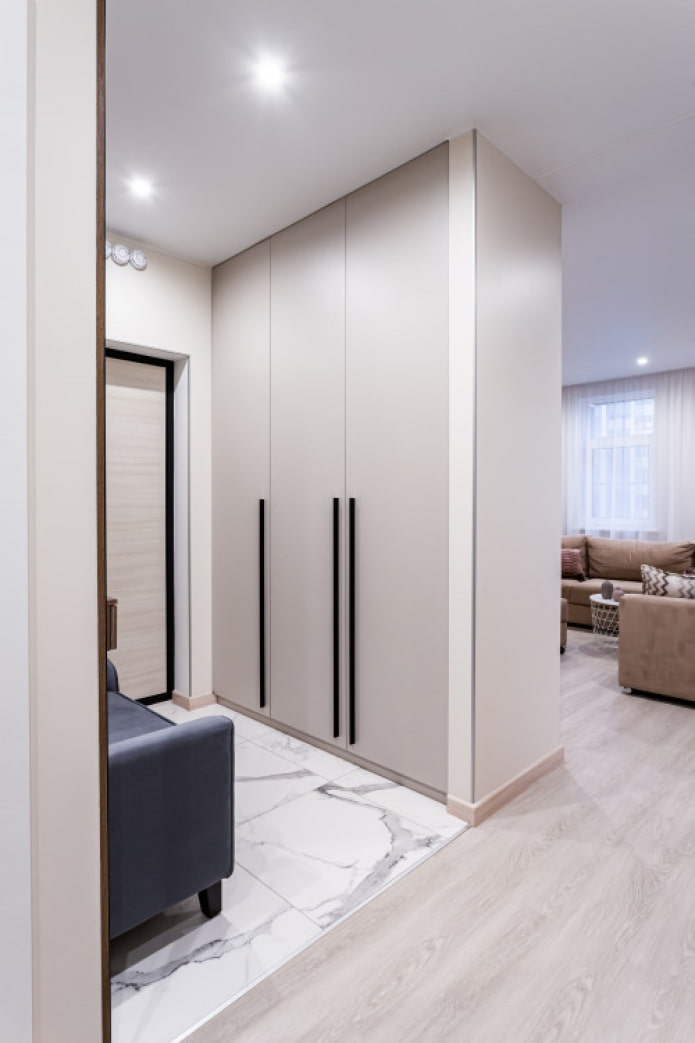
Pay special attention to the coating and design of the facades: the simpler and straighter the surface, the easier it will be to clean in the future.
Don’t be afraid of white furniture: it gets dirty no more than any light one. At the same time, white gloss, for example, is much more practical than dark glossy coatings.
Important! Be sure to think about a place for “everyday” shoes. A tray with sides or a special open shelf in a closet would be best.
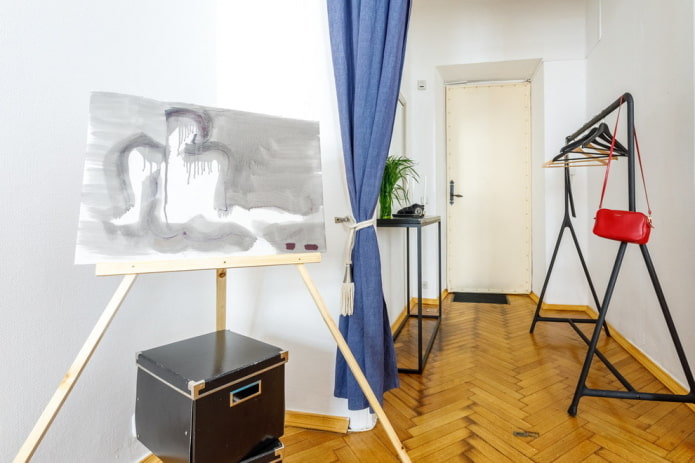
Decor and lighting
It is recommended to start decorating a bright hallway with functional details. First of all, a key holder. They are usually hanging, but a wide vase on a tabletop or a tray will also work for storing keys.
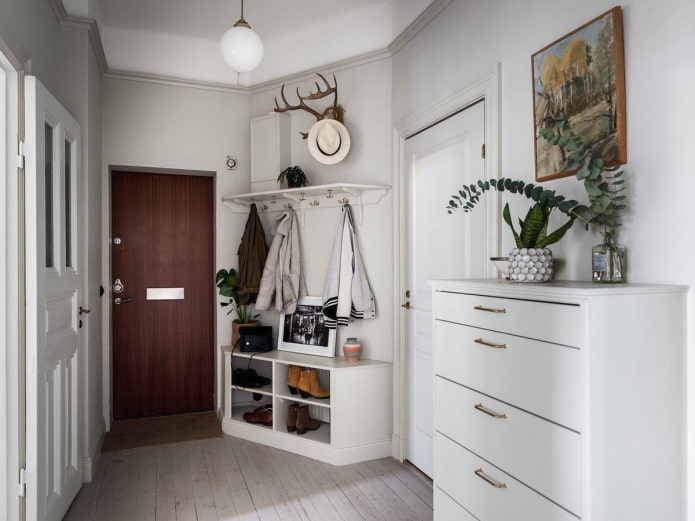
The photo shows an irregularly shaped room
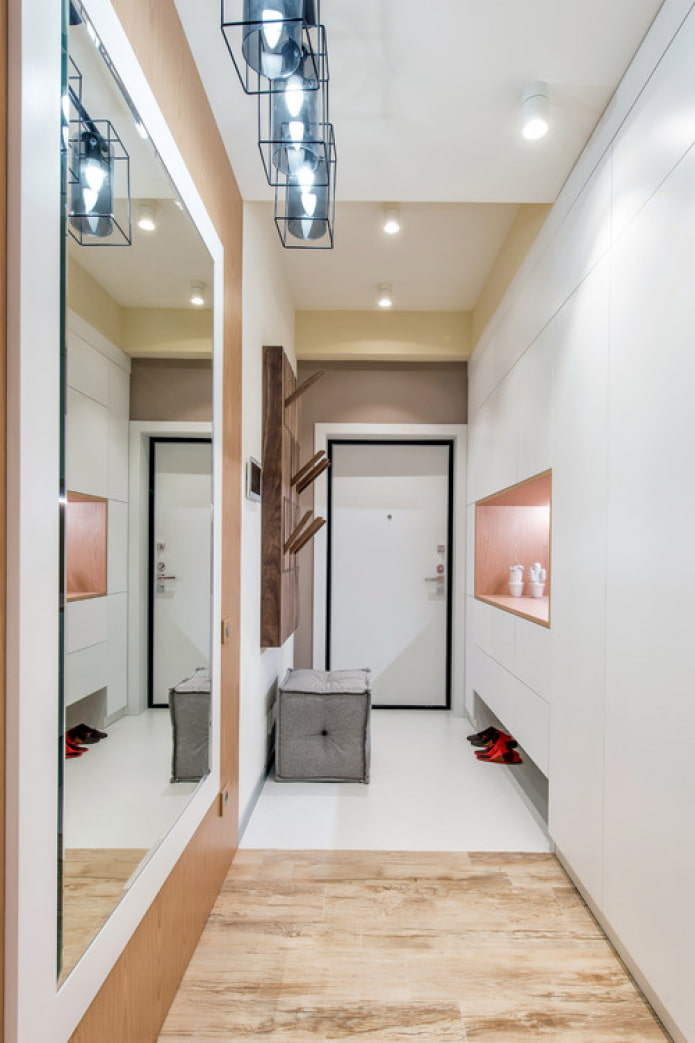
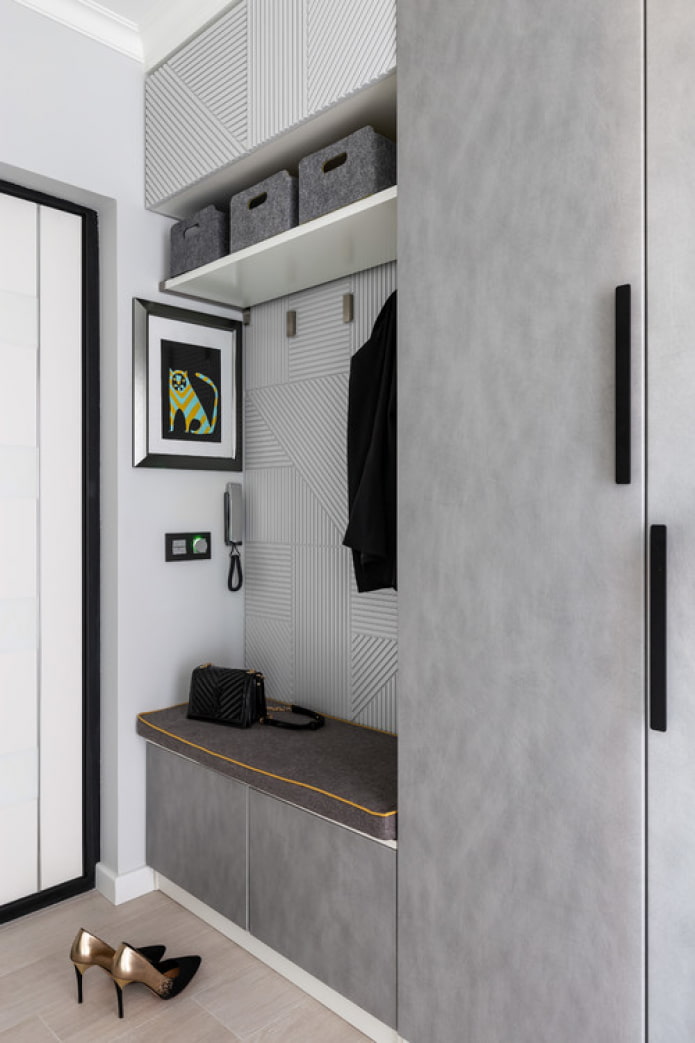
A mirror is a must. It can be a whole mirror wall or part of it, or a separate floor/hanging piece.
Important! The mirror in the hallway should reflect you completely – based on this, the size and installation location are selected. If the distance between the walls is not enough, it is built into the front door.
Lamps can also serve as decor. A designer chandelier or sconce can easily replace a work of art.
Baskets and beautiful boxes simultaneously solve the storage problem and decorate the space.
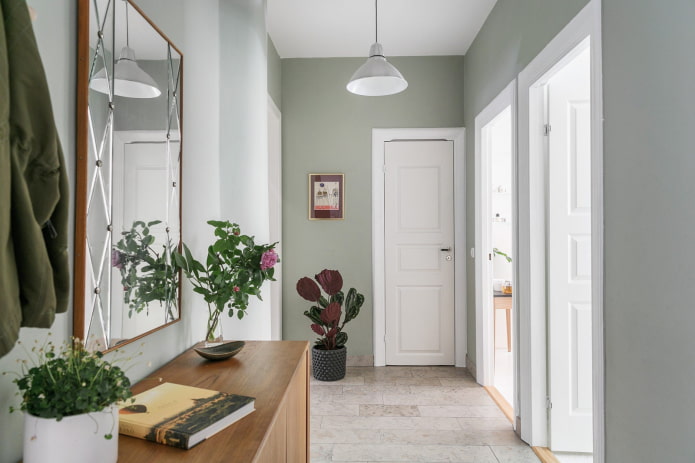
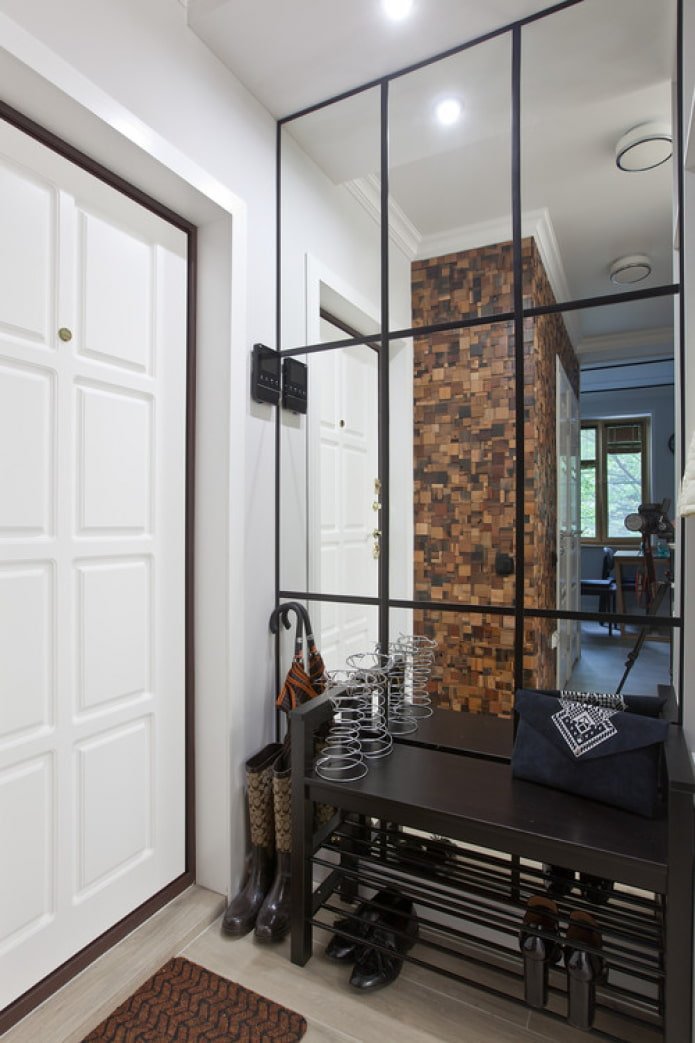
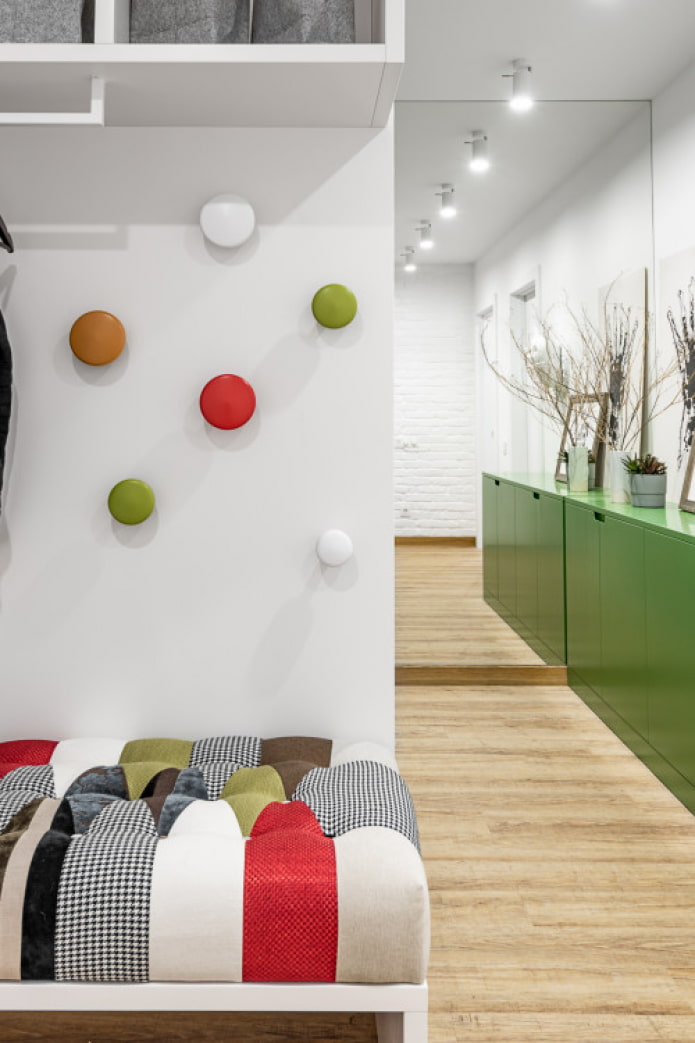
Exclusively decorative elements are presented in the form of:
- wall accessories – paintings, posters, panels, clocks;
- flowers – fresh cut bouquets, potted, dried flowers;
- table, floor elements – vases, figurines.
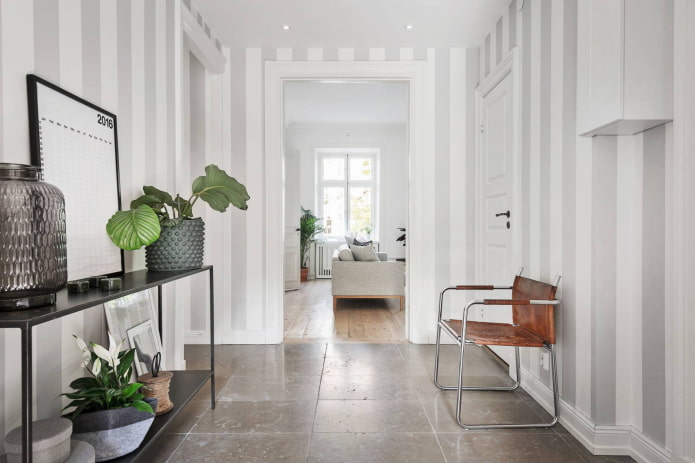
Examples in different styles
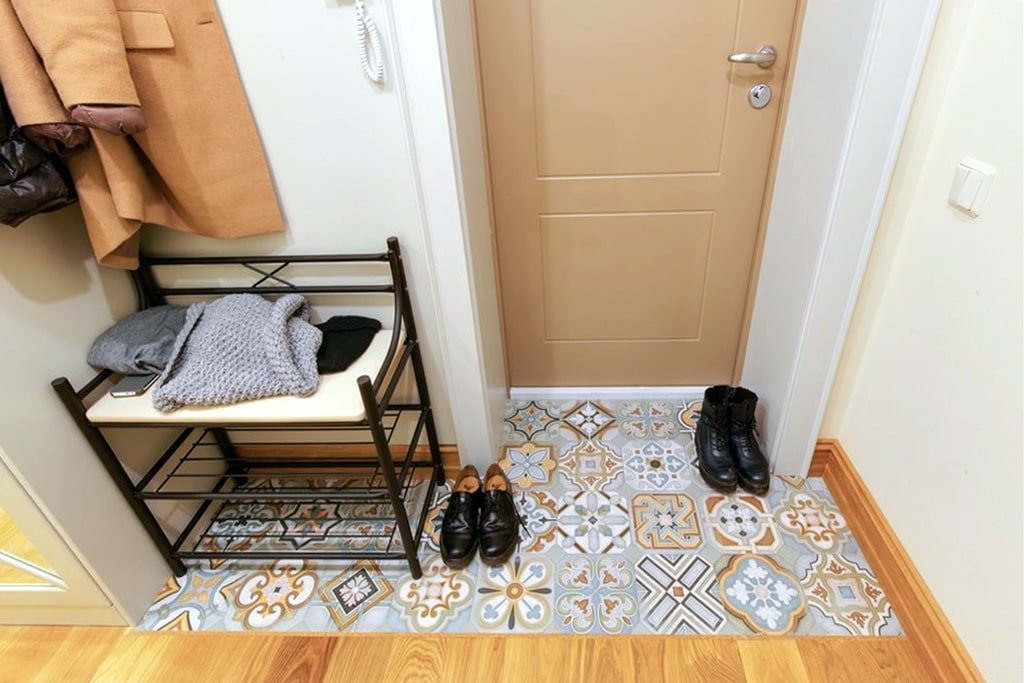
The real versatility of the light palette allows you to use it in any design direction.
- Scandinavian. The philosophy of this style prefers the lightest possible finishes and warm decor in the form of wood, wicker baskets, cozy rugs in the hallway.
- Classic. Corrugated facades of cabinets and cabinets, gold accents in furniture and decoration, the predominance of warm shades, natural materials – we create chic!
- Neoclassicism. Minimalistic design, plenty of mirrors, bright light from many points.
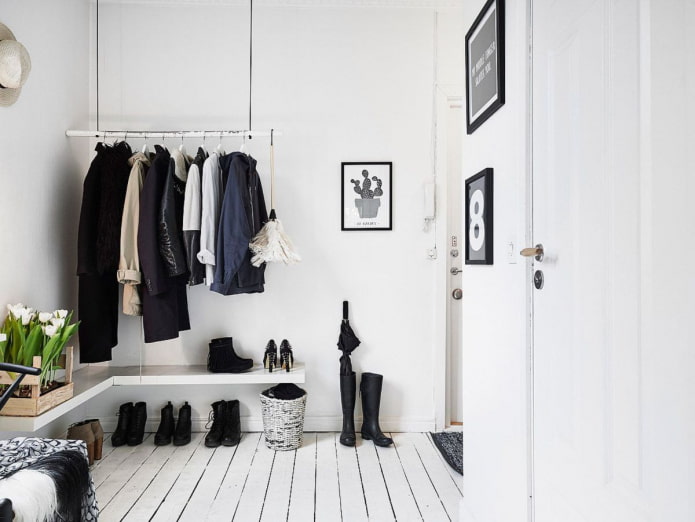
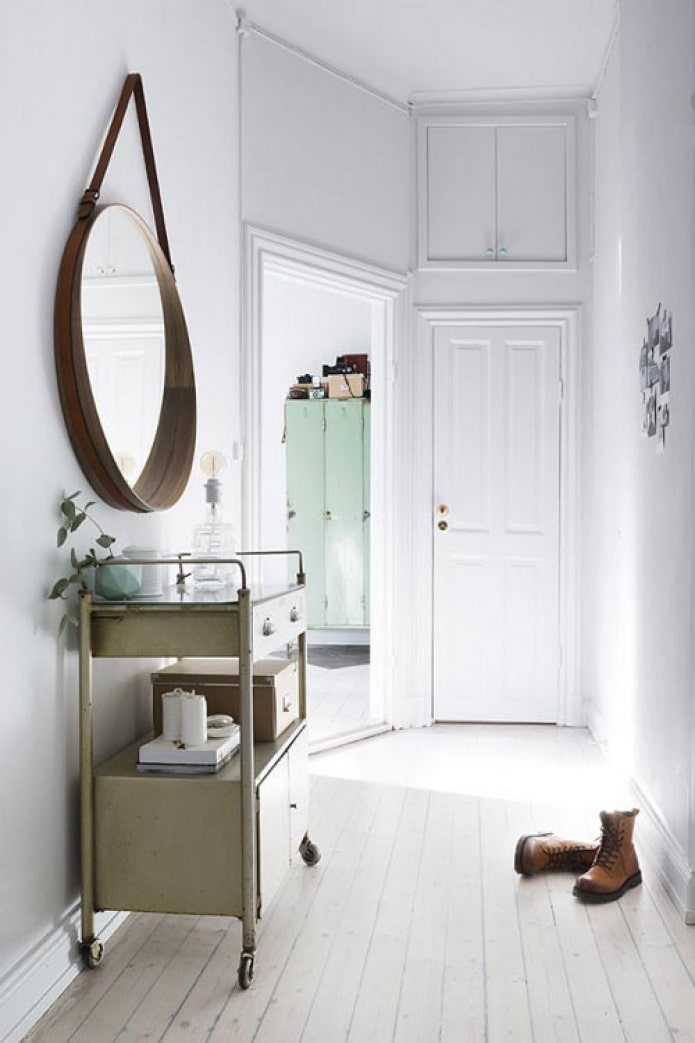
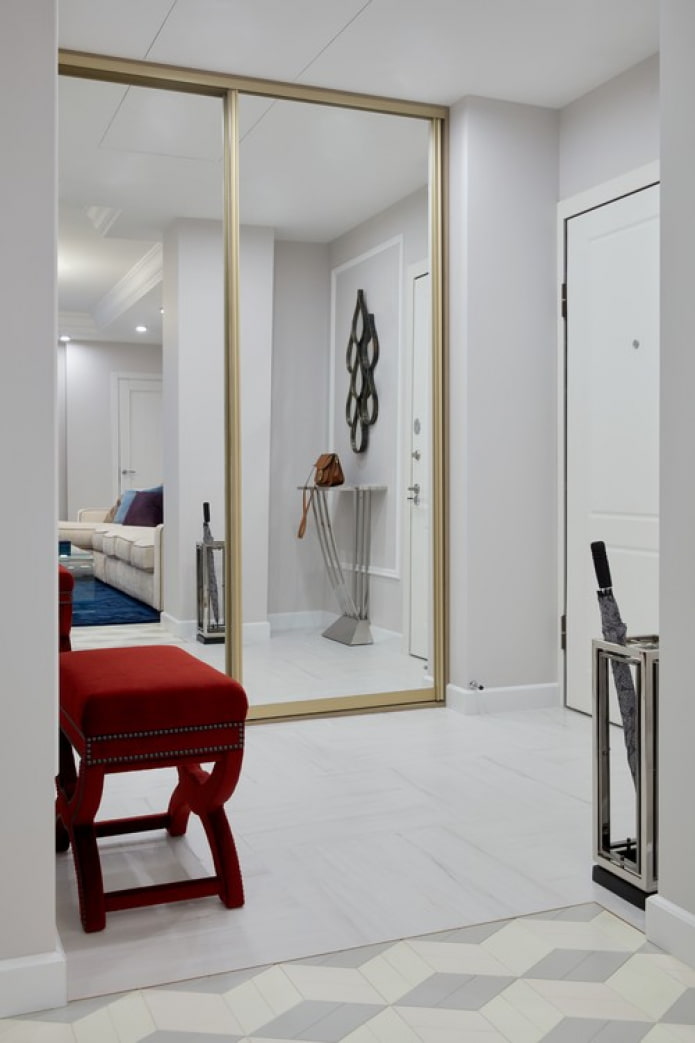
- Loft. Even this style can be light: white brick or grey concrete will not let you deviate from the style. Black is a must, but on small details – lamps, hooks, handles.
- Provence. The style involves a combination of pastel colors: purple, yellow, blue. The decor mainly includes flowers, paintings with landscapes and still lifes.
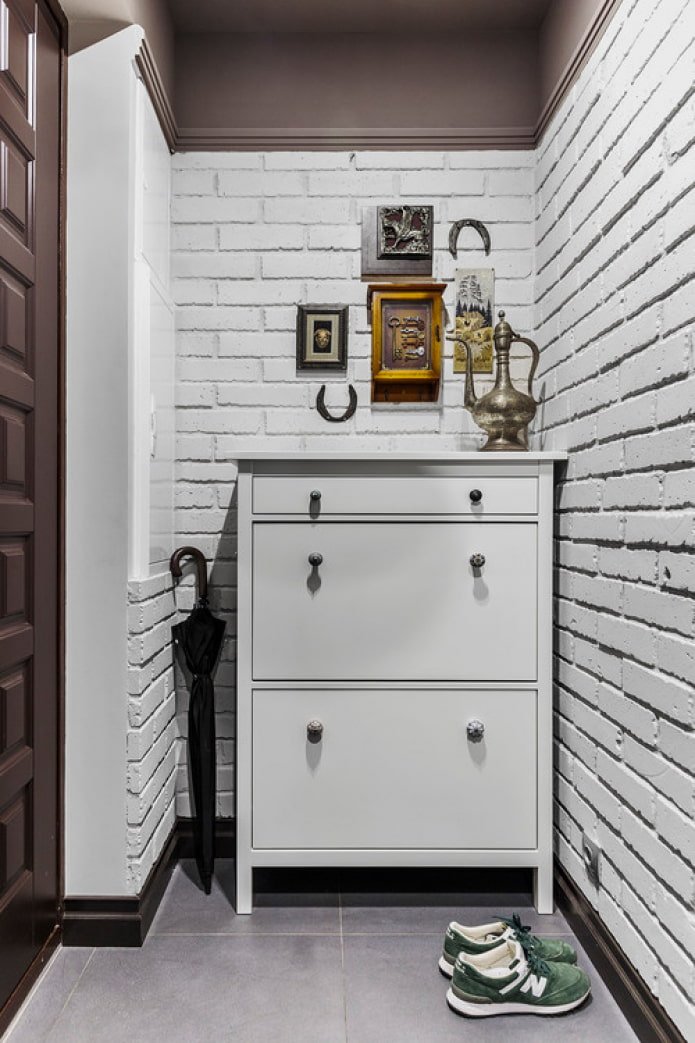
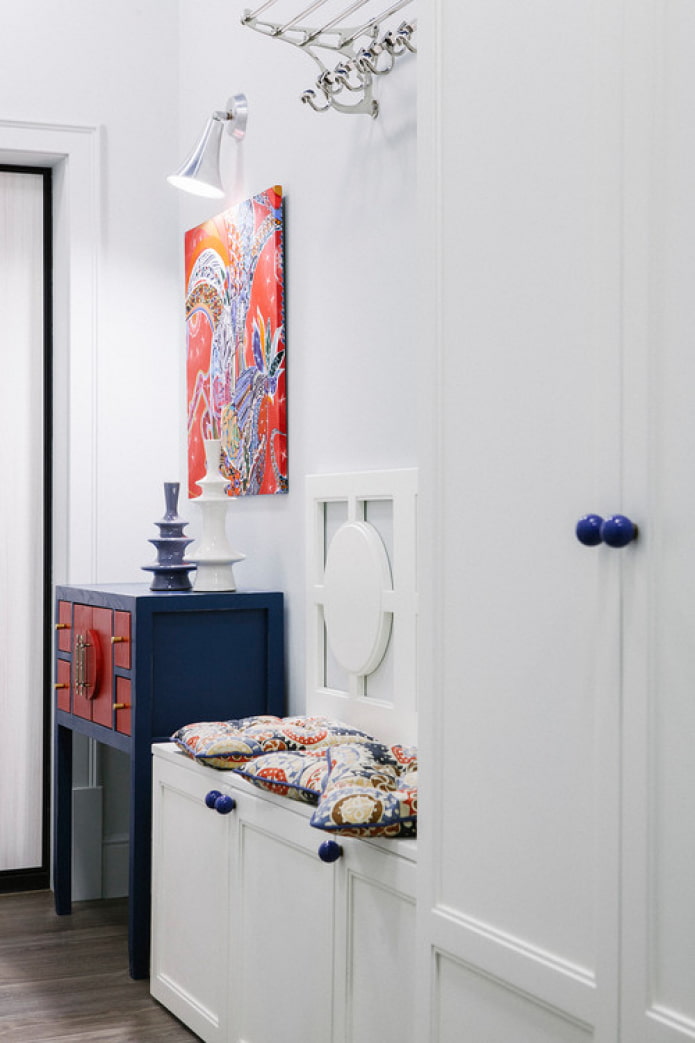
Now reading:
- Interior Design in Marine Style: More than 80 Photos and Creative Ideas
- DIY Garden Bench Making Courses and 7 Ideas for Inspiration
- Living room in loft style: 58 examples of interior design.
- Sofas for the living room: 70+ photos and modern interior design ideas
- Linen curtains for the interior: more than 80 photos and the best design ideas.